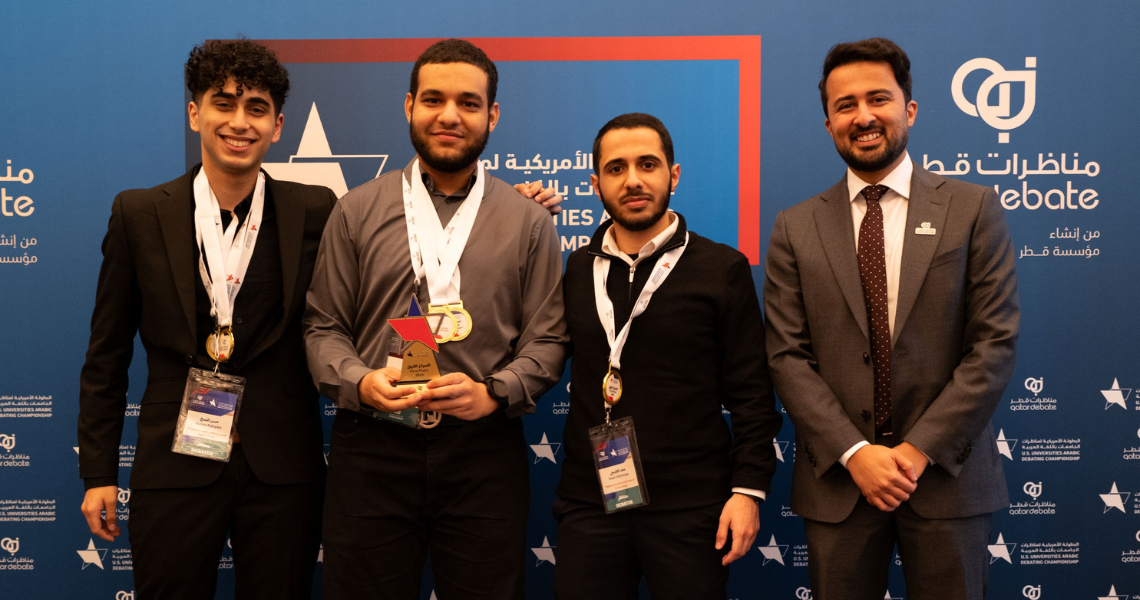More than 150 participants including debaters and adjudicators from the U.S.
QatarDebate, a member of Qatar Foundation for Education, Science and Community Development, concluded in New York the 6th edition of the U.S. Universities Arabic Debating Championship (USADC)— One of the largest annual national championships in Arabic debating worldwide. The championship reflects the growing global reach of the Arabic language as a medium for dialogue, embraced by both native and non-native speakers, and its strengthened presence in higher education institutions.
The championship kicked off on Friday, September 26, 2025, with the participation of 36 teams representing 34 American universities, including former hosts and champions such as Harvard University, the University of Chicago, Duke University, the University of Utah, and Stanford University, among others. The event was held immediately following the conclusion of the 80th session of the United Nations General Assembly, underscoring its alignment with global dialogues on critical issues.
This year’s championship title went to Massachusetts Institute of Technology (MIT), after a consistent and compelling performance in the final round against Stanford University. The closing debate discussed focusing education on emotional intelligence rather than academic achievements, which unfolded in a spirited atmosphere filled with high-level intellectual exchanges, attracting enthusiastic engagement from the audience and adjudicators alike. Over the course of three days, debaters tackled a range of pressing global issues, including e-commerce, progressive education, the four-day work week, and the future of the middle class.
Among the standout performers was Liam Railsback from the University of North Carolina at Chapel Hill, who, despite being a non-native speaker and having started learning Arabic only a few years ago, was recognized as the third top speaker in the championship for his eloquence and precision in argumentation. The overall Best Speaker award went to Hadil Odeh from Stanford University,
Enriching Activities to Enhance the Experience
This year’s edition witnessed remarkable preparation by participating universities, which invested in training and equipping their student teams through a variety of methods tailored to their contexts.
Many universities relied on their Arabic debate clubs, which were established as a result of QatarDebate’s capacity-building programs conducted in the United States over the past years. These programs empower participants to develop their skills and strengthen their active community engagement in Arabic debate championships held across the country. They also equip adjudicators with the fundamental techniques of judging, ensuring high-quality competitions and fostering an environment of fair and constructive evaluation. In addition, the programs aim to prepare students to become founders and leaders of debate clubs within their own educational institutions.
Selection of Adjudicators
The championship had a full adjudication panel from the United States, including graduates of the capacity-building programs, university professors, and former debaters. This represents one of the most prominent outcomes of QatarDebate’s focus on building national capacities to ensure the sustainability and expansion of activities. It also provided adjudication more attuned to the U.S. context and facilitate the development of related initiatives such as debate club management and academic curricula. The adjudication panel also included Arabic language learners who mastered it through their debate journeys, among them former debater Caleb Dewey from Brigham Young University and Teaching Assistant Professor Caroline Sibley from the University of North Carolina.



